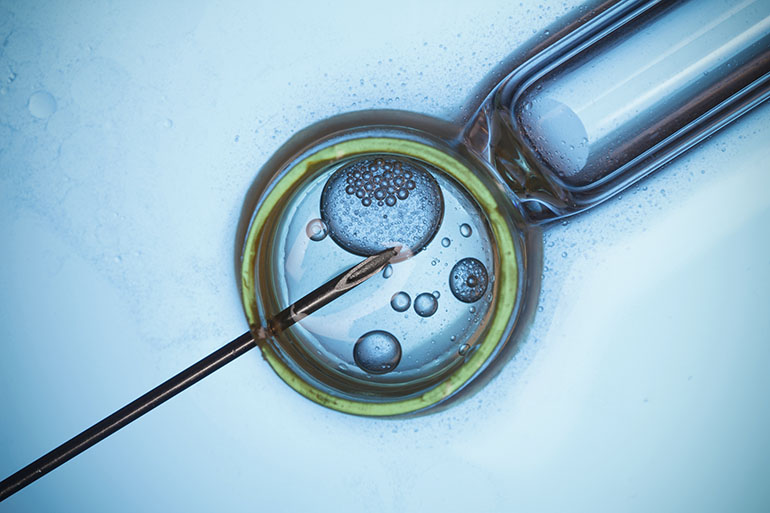IVF treatment in UK
IVF is a procedure that involves removing eggs from your ovaries and combining them with sperm (derived from the male partner) in a petri dish. Fertilization takes happen “in vitro,” or “in glass”, and this is why it’s been called In Vitro Fertilisation.
Moreover, when you think of stepping ahead with IVF treatment in UK, it is highly advisable to stay updated and informed about every related element and aspect.
Why is IVF treatment in the UK recommended?
 If you have come across any of the following infertility issues, IVF treatment is likely to be recommended:
If you have come across any of the following infertility issues, IVF treatment is likely to be recommended:
- If your fallopian tubes are obstructed or damaged, or if you have any other condition for which IVF is the only treatment that can help you become pregnant.
- If the male partner got some issues with his sperm motility and quantity
- If you’ve tried and failed with fertility medicines like clomifene or other reproductive treatments like IUI
- If you’ve been trying to conceive for at least two years and haven’t been able to become pregnant due to an unknown reason
How does it Work?
Fertility medications
The first stage in IVF treatment is to recommend fertility medicines to the Intended mother to help her ovaries create as many eggs as possible. Fertility medicines will almost certainly be required to stimulate your ovaries into producing mature eggs suited for fertilization.
The intended mother’s ovaries release one egg every month throughout her typical menstrual period. More eggs boost your chances of becoming pregnant, and utilizing fertility medicines increases the amount of mature eggs produced. IVF should be used with fertility medicines to stimulate your ovaries, since this increases your chances of becoming pregnant.
Down-regulation is the term for suppressing or stopping your cycle with medications called gonadotrophin-releasing hormone (GnRH) analogues (pituitary agonists) in the UK. You take these tablets or injections every day for roughly two weeks.
There are other, quicker ways to get control. GnRH antagonists are used in some cases. These medications are normally administered over a few days following pre-treatment with the contraceptive pill and before ovulation stimulation begins. This procedure is not widely used in the UK, although it is appropriate for women who are more likely to experience severe adverse effects from fertility medicines.
If you have endometriosis, you can take the GnRH agonist Cetrotide for a few months to help enhance the quality of your eggs and your chances of getting pregnant.
Injecting the hormones
 For the next 12 days, you will receive daily hormone injections. These cause your ovaries to produce a higher number of mature eggs than usual. The list of hormones used would include gonadotrophins follicle stimulating hormone (FSH) and luteinising hormone (LH) .
For the next 12 days, you will receive daily hormone injections. These cause your ovaries to produce a higher number of mature eggs than usual. The list of hormones used would include gonadotrophins follicle stimulating hormone (FSH) and luteinising hormone (LH) .
These reproductive medicines affect women differently, and they can have certain side effects. If this occurs, expert professionals from our partner IVF clinic in UK will constantly watch you to ensure that you are properly cared for.
To track how many and how effectively your eggs are reacting, ultrasound exams and potentially blood hormone testing will be provided. This is for your protection and to see if your eggs are ready. One can choose from Egg donation programs in the UK. IVF treatment cost in UK is relatively expensive with one treatment cycle costing around £5,000.
Sperm collection and egg retrieval
The eggs will then be removed from your ovaries under the supervision of a fertility doctor. A tiny, hollow needle linked to an ultrasonic scan probe will be used by your doctor. The probe aids in the identification of the follicles that contain the eggs. You may have some discomfort during the treatment, but if you experience pain afterwards, your doctor will give pain medication.
Your spouse will need to supply a new sample of semen while your eggs are being extracted. The sperm is cleaned, and the highest-quality sperm is retrieved, ready to fertilize the eggs. The sperm and eggs are then mixed in a dish and cultured in an incubator.
Embryo transfer and fertilization

The dish is checked one day after the eggs and sperm are combined to see whether any eggs have been fertilized. If they have, they will be stored in your uterus for two to five days before being placed back into it.
Any fertilized eggs will have developed into an embryo, which seems like a ball of cells. If the embryos are transplanted at the later blastocyst stage, around day five, our fertility experts may refer to them as blastocysts. Only the healthiest embryos are implanted into your uterus.
Comprehensive chromosomal screening is a pre-implantation test that certain clinics provide. Embryos are screened before being transplanted at the blastocyst stage. Only embryos that are expected to contain a complete set of chromosomes are chosen.
When a single embryo is transplanted, CCS may increase your chances of becoming pregnant and lower your risk of miscarriage. This is especially true if you are a new mother who is utilizing her own eggs.
By now, you should have been taking progesterone to help your uterus (womb) prepare for the embryo by thickening its lining. This is given to you through injection, pessary, or gel. The embryos are unlikely to implant if your uterine lining (endometrium) is too thin. If this is the case, the IVF treatment in UK procedure will be terminated.
A tiny catheter (tube) is passed through your cervix and into your uterus to transfer one or two embryos. Ultrasound may be used to guide your fertility specialist.
No more than three embryos can be lawfully transferred to eliminate the danger of a high-order multiple pregnancy. The number of embryos transplanted is determined by your age and likelihood of success. This, in turn, is dependent on your specific reproductive issue.
What is the expected duration of IVF treatment?
IVF cycles might take anywhere from four to six weeks to finish. The egg harvesting and fertilization procedures will take roughly half a day for you and your partner at our partner IVF clinic in UK. You’ll return in two to three days for the embryos to be transferred to your uterus, or five to six days for the blastocysts to be transplanted.
What is the IVF success rate in the UK?
The success rate for IVF treatment is determined by your age and the kind of reproductive problem. Your odds of success increase if you are younger and your eggs are healthier. According to 2010 data, the percentage of cycles that result in a live delivery for women who use their own fresh eggs is:
- If you’re under 35, the success rate is 32%.
- If you’re between the ages of 35 and 37, the success rate is 28%.
- If you’re between the ages of 38 and 39, the success rate is 20%.
- If you’re between the ages of 40 and 42, the success rate is 14%.
- The success rate is 5% if you’re between the ages of 43 and 44.
- The success rate is 2% if you are 45 years or older
So how much does the cost of IVF treatment in UK? We focus on tailored fertility treatment and transparent pricing for any tests or treatments. 1 cycle of IVF can cost up to £5,000 or more. There may be additional costs for medicines, consultations and tests.
You have a better likelihood of success if you have previously been pregnant or had a kid. Besides, our expert professionals at Gaia Fertility would assist you during every stage of your IVF treatment. Connect with one of our client coordinators today for a free consultation!





Gaia Fertility is located in Southern Cyprus, offering support programs and services to cope with infertility issues. We ensure to deliver high success rates and compassion throughout every patient’s experience. Most importantly? The work comes from the bottom of our hearts.
Reach Out to Us
When you are ready to discuss your fertility plans, we will be here.
© Copyright 2020 – Gaia Fertility
 Hebrew
Hebrew Arabic
Arabic German
German
